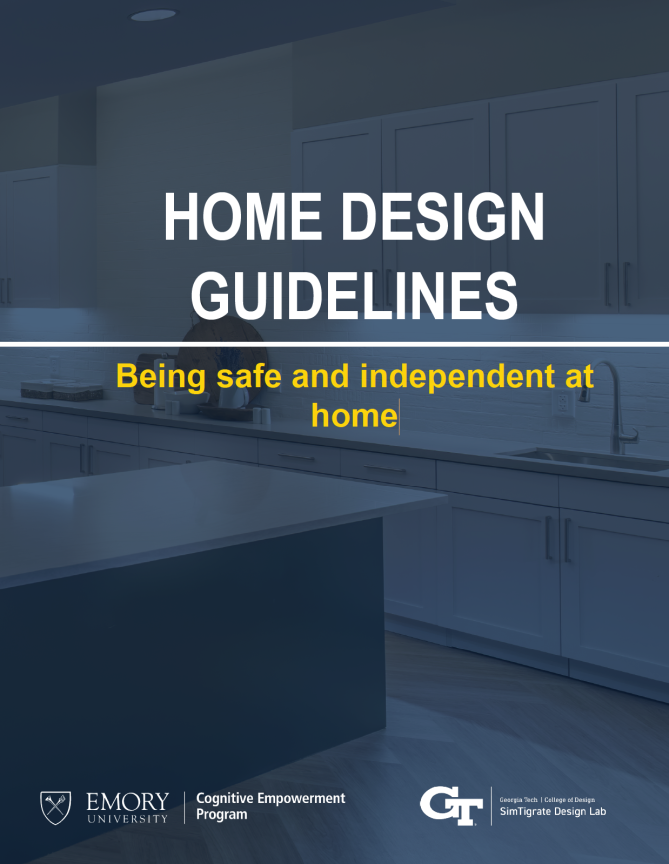
Cognition and the Built Environment
Many researchers study the built environment and the ways in which it can impact accessibility, engagement, and quality of life for different populations. However, not much of this research has focused on the experience of individuals with Mild Cognitive Impairment (MCI). MCI is a relatively new diagnosis and is characterized by difficulties in memory and reasoning beyond the expected effects of aging.
Through a collaborative project with Emory University, the SimTigrate Design Lab is studying individuals with MCI, many of whom might go on to develop Alzheimer's disease and dementia. Many of these individuals are losing their ability to function independently at home and in the community; our goal is to develop ways to make everyday life easier and more joyful for individuals with this diagnosis.

